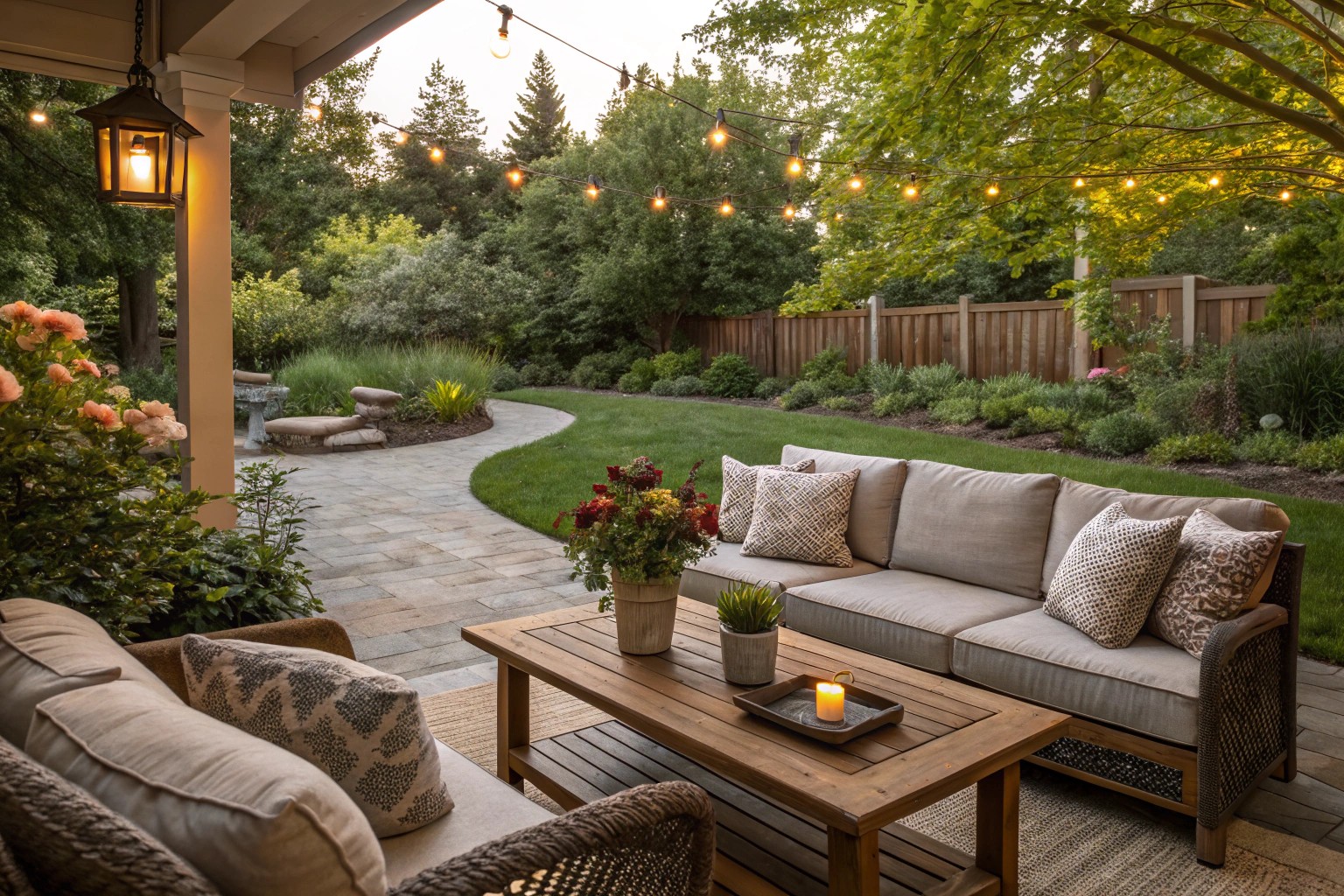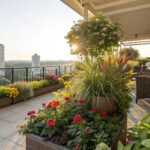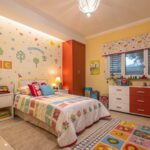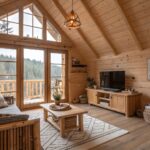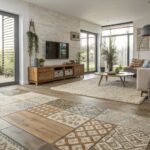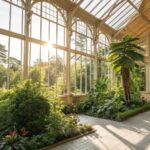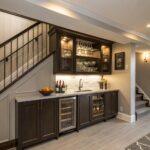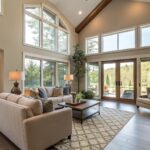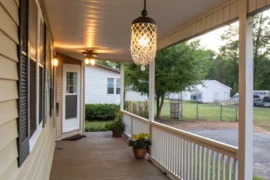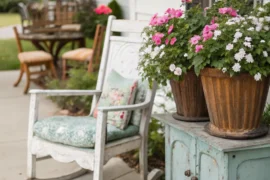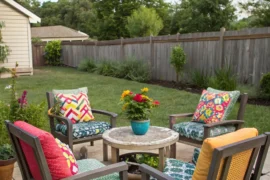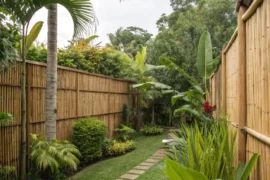The outdoor coffee table is the unsung hero of patio design—a functional centerpiece that anchors your seating area while providing the perfect canvas for your personal style. After transforming hundreds of outdoor spaces over the years, my experience shows that a thoughtfully styled coffee table can elevate an ordinary patio into an extraordinary outdoor living room. This guide will help you create that perfect statement piece for your outdoor sanctuary.
Understanding the Foundation: Selecting the Right Table
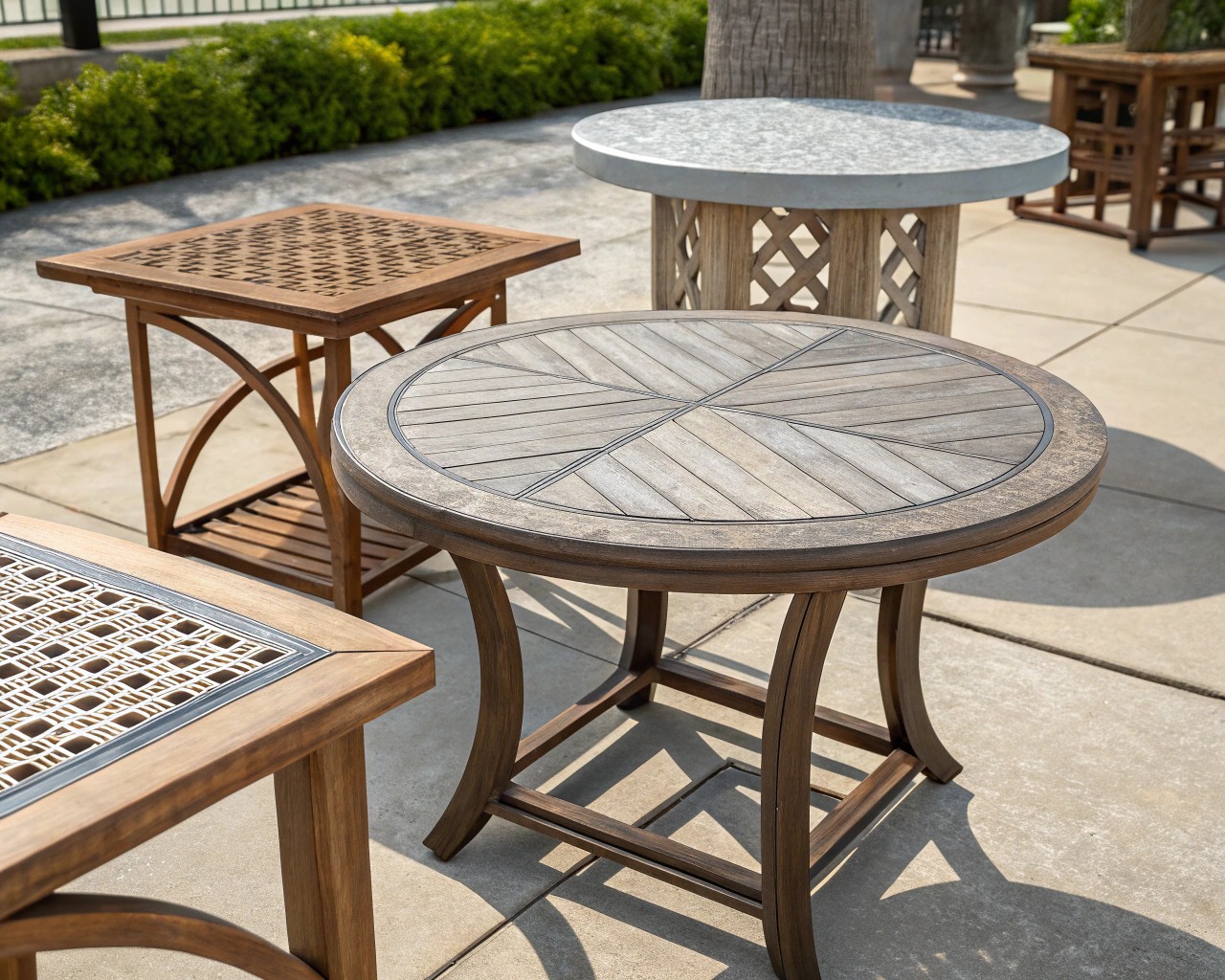
Before diving into styling, we need to ensure you’re working with the right table. Your selection serves as the foundation for everything that follows.
Material Matters: Durability Meets Design
The material of your outdoor coffee table determines not only its longevity but also sets the tone for your styling approach.
| Material | Durability | Maintenance | Style Profile | Best For |
|---|---|---|---|---|
| Teak/Hardwood | High (10+ years) | Moderate (occasional oiling) | Warm, natural, ages to silver patina | Traditional, rustic, coastal settings |
| Aluminum | Very high | Low (wipe clean) | Sleek, modern | Contemporary spaces, windy areas |
| Synthetic Wicker | High | Low | Relaxed, traditional | Casual spaces, covered patios |
| Concrete/Stone | Very high | Moderate (sealing needed) | Bold, contemporary | Modern designs, permanent placements |
| HDPE Plastic | Very high | Very low | Casual, versatile | Family-friendly spaces, poolside |
Consider the environment carefully. For instance, a client in coastal Massachusetts initially wanted a glass-top table for her beachfront property. However, given the challenges of maintaining clear glass in salt air, we opted for a beautiful teak table instead. It has since weathered gracefully, developing a stunning silver patina that complements her ocean view perfectly.
Size and Scale: The Goldilocks Principle
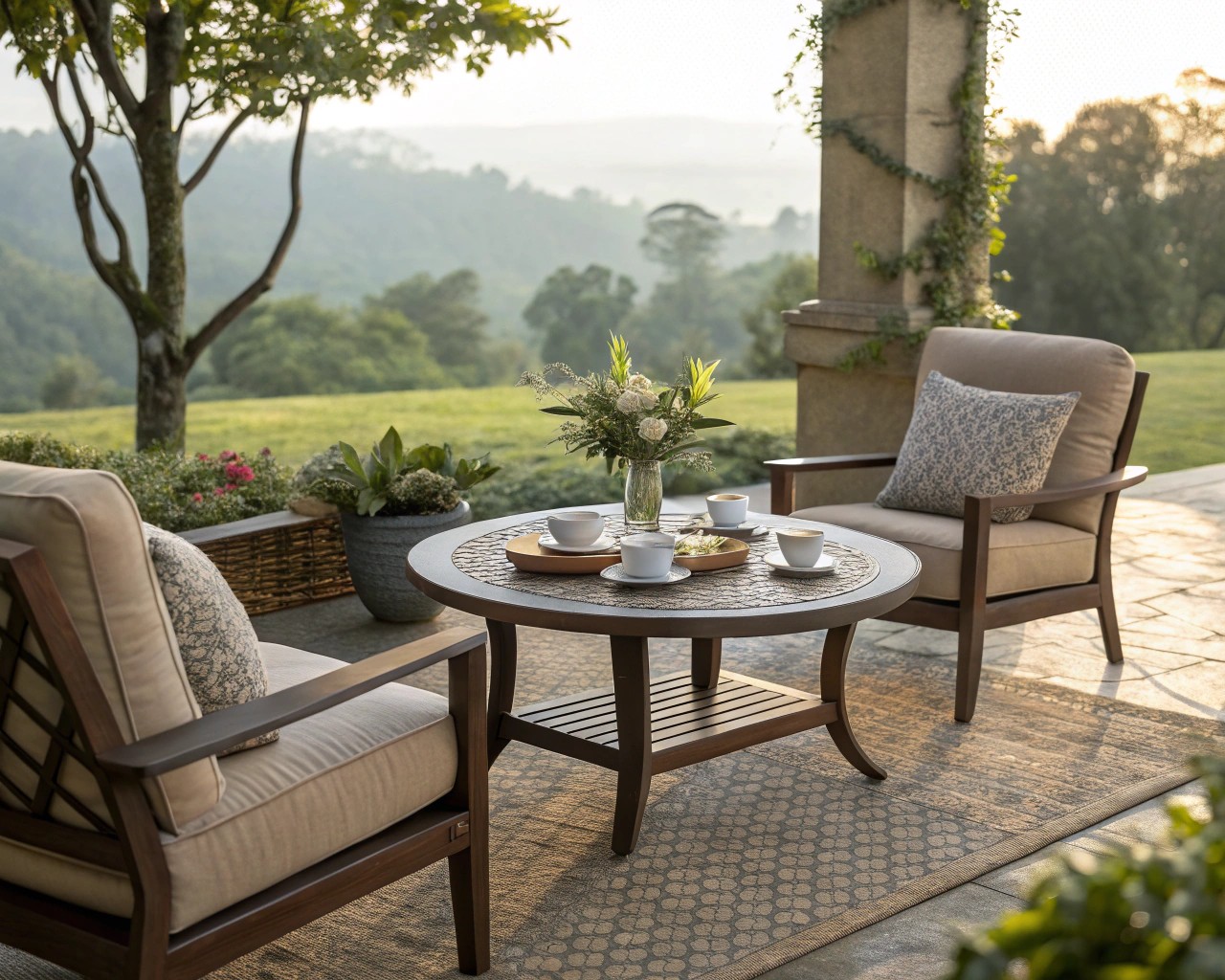
Your coffee table should be proportional to your seating arrangement:
- Height: 16-18 inches tall (typically 2-4 inches lower than seating)
- Length: Approximately 2/3 the length of your primary sofa
- Clearance: Maintain 12-18 inches between table and seating
Standard guidelines can be adapted for unique situations. In a project for a client overlooking the Hudson Valley, rather than a single large piece, clustering three small round tables proved more effective, offering flexibility for entertainment while maintaining appropriate scale.
Core Styling Principles: The Designer’s Toolkit
The Rule of Three: Visual Harmony
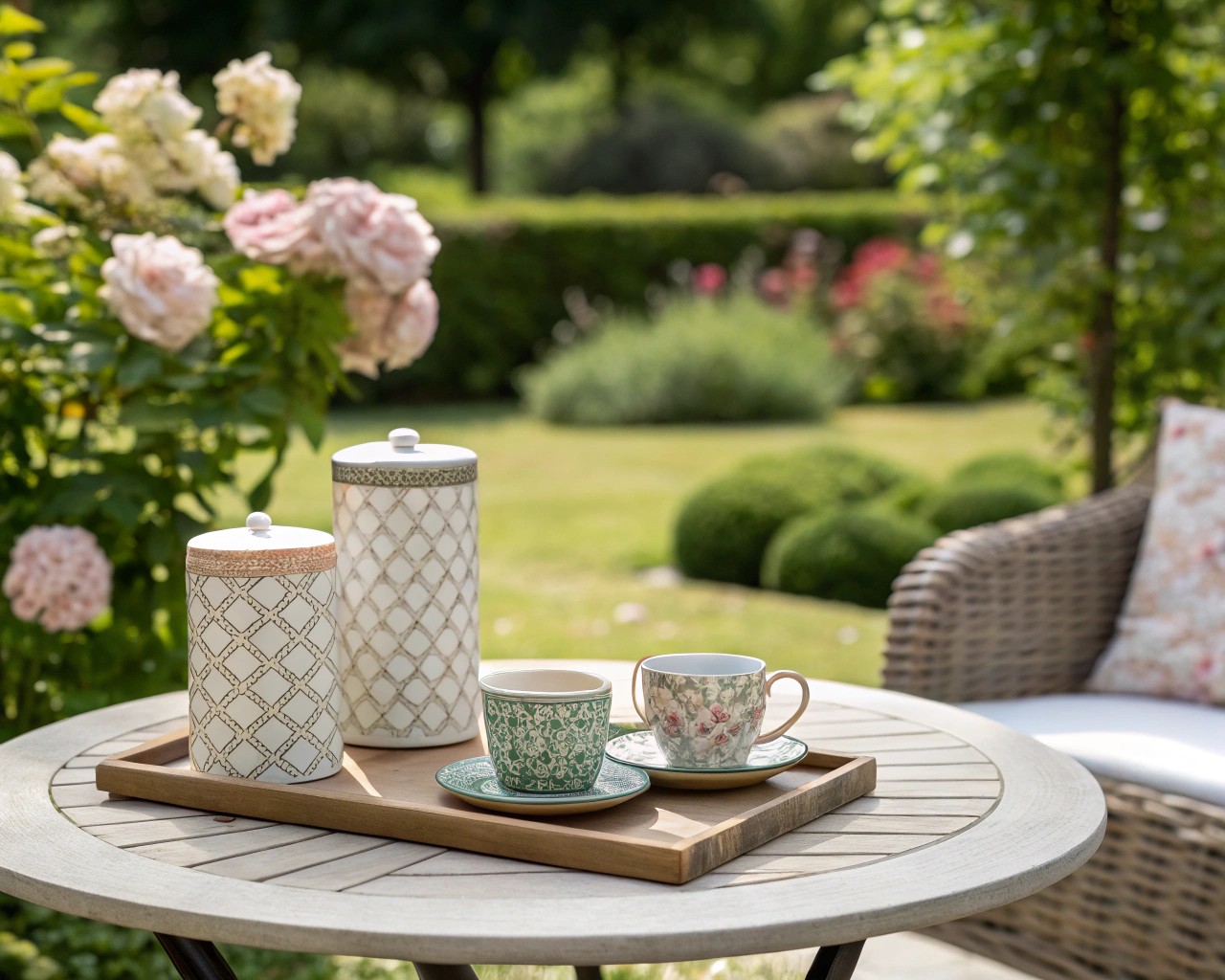
When styling any coffee table, the rule of three is a reliable principle—grouping objects in threes creates visual interest and balance. This works whether you’re using three distinct objects or three groupings of items.
For outdoor tables, consider combinations like these:
- A potted plant + sculptural object + stack of weather-resistant books
- Lantern + tray with drinkware + natural element (like driftwood)
- Three varied-height candle holders of similar material
Playing with Height: Creating Visual Interest
Nothing flattens a design faster than having all objects at the same level. Vary your heights to create a more dynamic arrangement:
- Low elements: Trays, books, coasters
- Mid-height elements: Small potted plants, candles, decorative bowls
- Tall elements: Lanterns, larger plants, vertical sculptures
Texture Mix: Adding Dimension
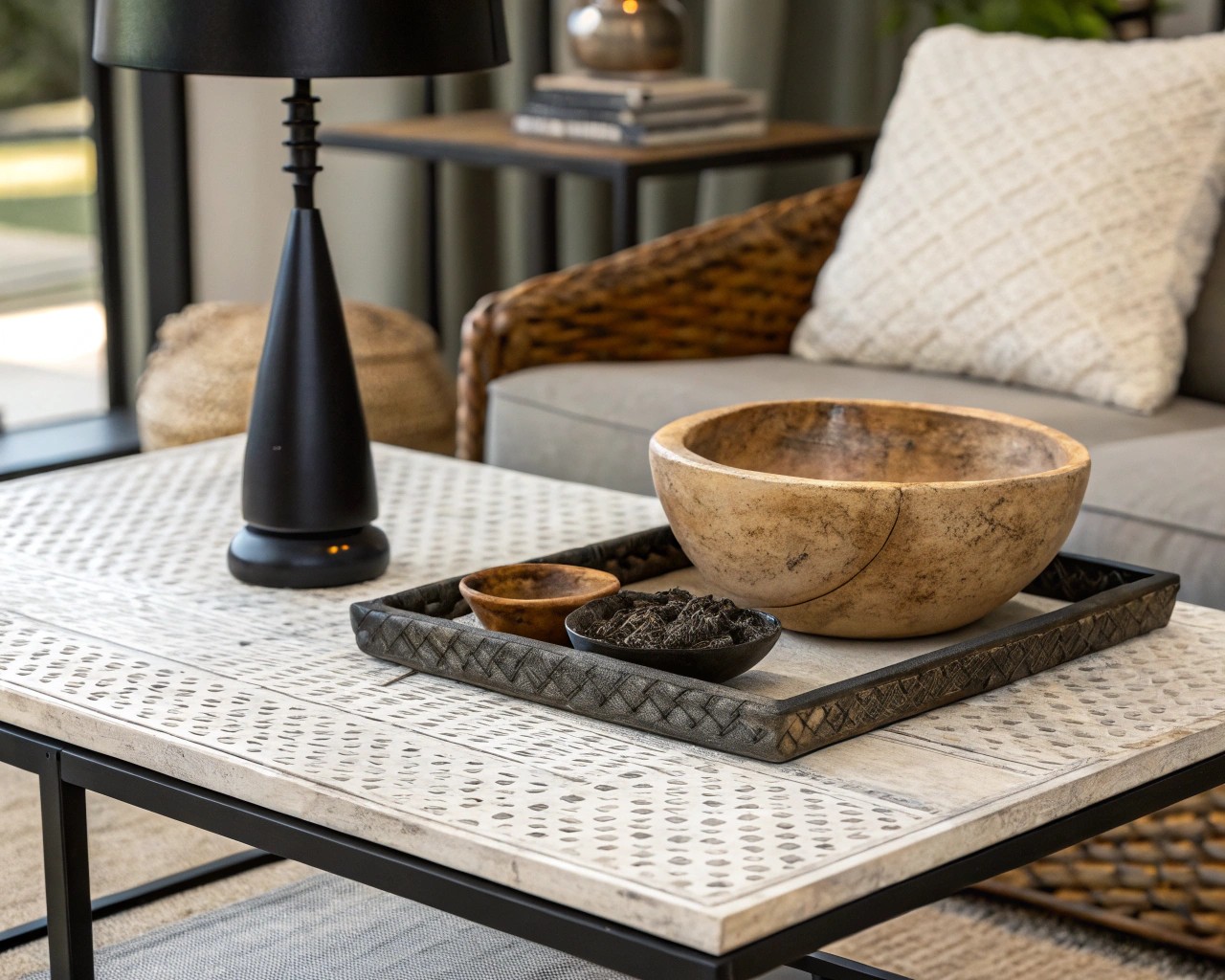
Outdoor coffee tables benefit tremendously from textural contrast. Imagine an Arizona patio setting where a smooth concrete table is paired with a rough-hewn wooden tray, soft woven placemats, and sleek metallic accents—this layering creates a tactile experience that invites touch and inspection.
Seasonal Styling Approaches: Year-Round Impact
Summer Inspirations
Summer styling should feel light, vibrant, and refreshing:
- Incorporate bright cushions and throws in patterns like florals or stripes
- Choose lightweight serveware such as melamine platters and acrylic drinkware
- Add cooling elements like potted herbs (bonus: they’re functional for summer cocktails!)
- String lights or lanterns for evening illumination
- Fresh fruit arrangements or a colorful tray of citrus
Winter Warmth
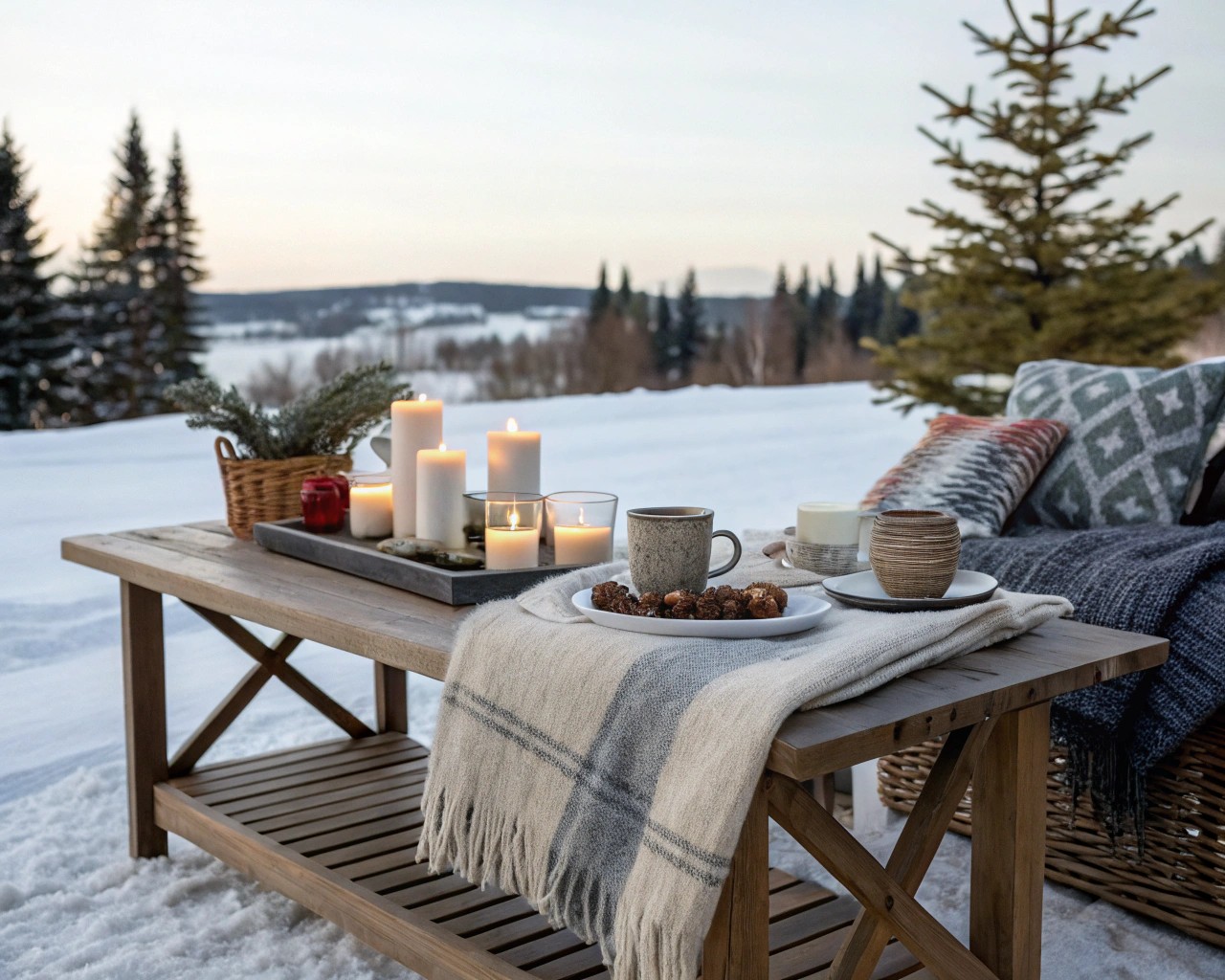
In many American climates, outdoor spaces remain usable year-round with the right styling touches:
- Introduce soft, textured fabrics like wool or fleece for throws and cushions
- Opt for darker, richer colors such as deep reds or earthy tones
- Incorporate warming elements like small tabletop fire features or tealight holders
- Fill decorative bowls with seasonal items like pinecones or ornaments
- Set up thermal mugs for hot beverages
Functional Styling Strategies: Beauty with Purpose
The most successful outdoor coffee table styling maintains a balance between aesthetics and practicality.
Practical Elements with Style
Extensive project experience highlights the value of styling elements serving a dual purpose whenever possible:
- Trays: Corral smaller items while making them easy to move when needed
- Decorative boxes or bowls: Perfect for storing matches, bottle openers, or sunscreen
- Books and magazines: Provide entertainment while adding color and texture
- Coasters: Protect surfaces while complementing your design scheme
Lighting Solutions
Effective lighting can transform evening entertaining. Consider solutions implemented in various projects, such as:
- Solar-powered tabletop lamps requiring no cords or outlets
- Weather-resistant LED candles in hurricane glass containers
- String lights draped from nearby umbrella supports to wash the table in gentle light
Theme-Based Styling: Creating a Cohesive Story
Coastal Vibes
For a beach-inspired setting:
- Blue and white color palette with sand tones
- Natural elements like shells, driftwood, or coral
- Rope-wrapped or nautical-inspired containers
- Weathered or whitewashed wood accessories
Modern Minimal
Achieving a modern minimal look often involves principles applied for clients seeking this style, for instance:
- Limiting the table to just three precisely chosen objects
- Using a strict black, white, and concrete color palette
- Incorporating one striking architectural plant (like a small agave)
- Adding a single geometric sculptural element in brushed brass
Tropical Paradise
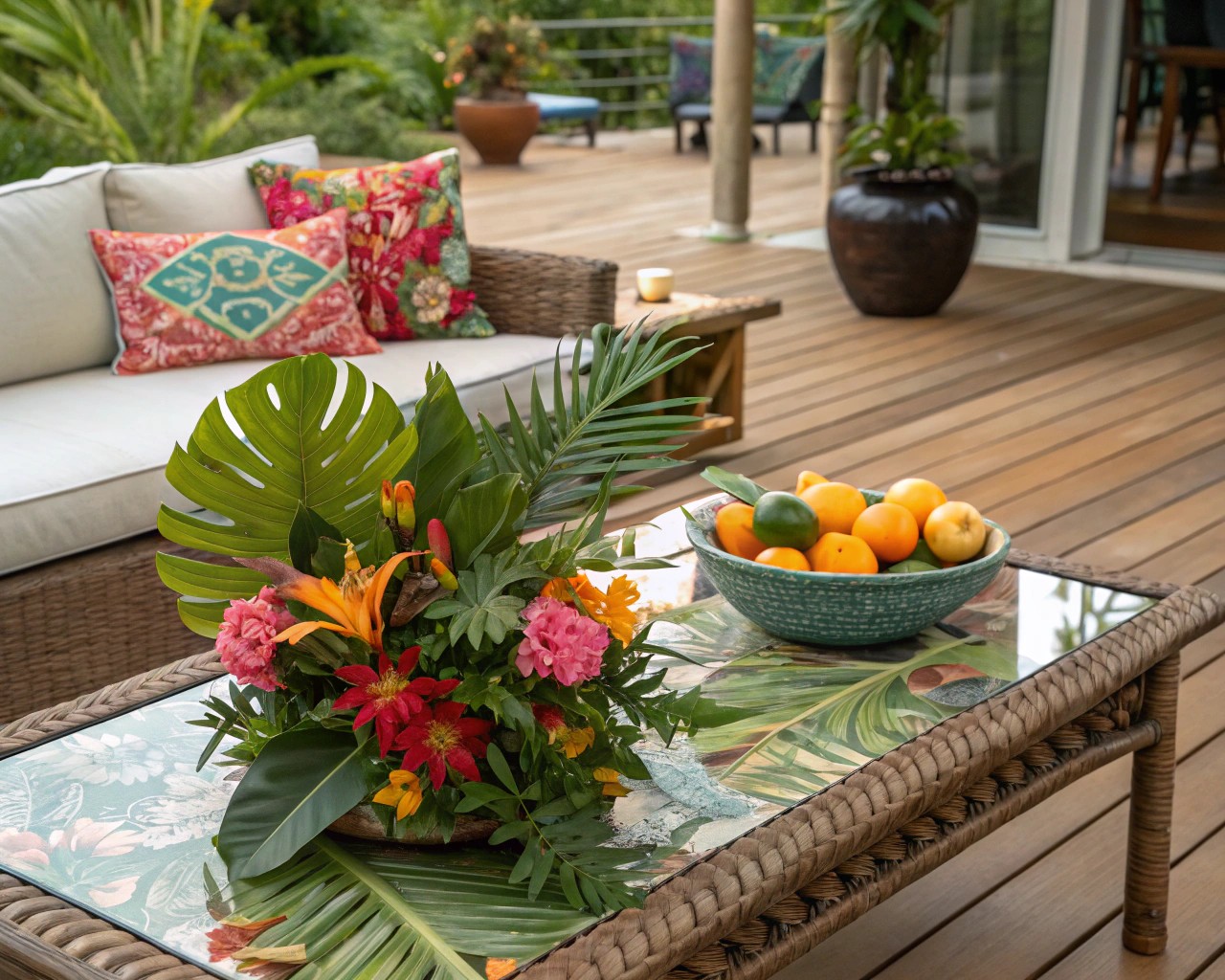
Transform your table into a lush oasis with:
- Vibrant colors (emerald green, coral, turquoise)
- Small potted tropical plants like small palms or bromeliads
- Natural woven elements like rattan or bamboo
- Fruit-inspired decorative objects or actual fresh tropical fruits
Practical Styling Lists: Designer Shortcuts
Must-Have Styling Accessories
- Multi-purpose tray (weather-resistant)
- Set of outdoor-safe candles or lanterns
- Low-maintenance plant or high-quality faux greenery
- Stack of weather-resistant coffee table books
- Decorative container for small items
- Set of drink coasters that complement your design
Quick Style Refresh Ideas
For clients seeking a quick update without a complete overhaul, these changes offer significant impact:
1. Swap out cushions or throw pillows on surrounding seating
2. Change the centerpiece plant for something seasonal
3. Introduce a new color through small accessories
4. Update the tray or main organizing element
5. Add seasonal decorative elements (shells in summer, pinecones in fall)
A Designer’s Perspective: Lessons from Experience
Throughout my career, it’s become clear that the most successful outdoor coffee table designs reflect the homeowners’ personality while remaining practical for their lifestyle. A common challenge arises when clients entertain frequently but find themselves constantly clearing the coffee table.
One effective solution, successfully used for clients like a family in Portland, is a two-tier styling approach. The top layer features beautiful, decorative elements arranged on a single large tray. This can be easily lifted away, revealing practical storage underneath for games, extra drinkware, or other entertaining essentials. This simple strategy can significantly improve how a space is used, blending form and function seamlessly.
Common Styling Mistakes to Avoid
Observing numerous outdoor spaces reveals common pitfalls that often need correction:
- Overstuffing: Outdoor coffee tables need negative space to breathe
- Using indoor-only materials: Always select weather-resistant items
- Ignoring scale: Tiny decorative items get lost on large tables
- Forgetting function: Beautiful but impractical styling leads to frustration
- Seasonal neglect: Failing to update styling as seasons change
- Disregarding wind: In exposed areas, lightweight items become projectiles
Maintenance Wisdom: Keeping Your Style Fresh
Even the most beautiful coffee table styling requires maintenance to retain its charm. Strategies that work well for clients include:
- Create a small, discreet storage box nearby for quickly storing sensitive items when weather threatens
- Apply protective coatings to wooden and metal elements at the beginning of each season
- Keep a cover handy for protecting the entire arrangement during extended away periods
- Establish a weekly quick-clean routine to prevent buildup of pollen, dust, and debris
- Replace or refresh plants and organic elements regularly

